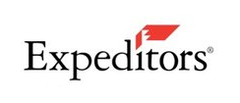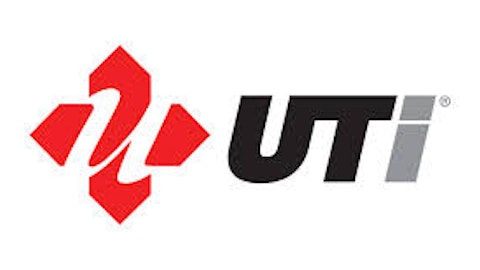This article is part of our Real-Money Stock Picks portfolios series.
In many markets, a 12.3% return in 15-plus months would not be too shabby (not counting dividends received). That’s what Expeditors International of Washington (NASDAQ:EXPD) has done in my Messed-Up Expectations portfolio since I bought it a year ago last May. But that’s just not enough in this market. Over the same time period, the S&P 500 (without dividends) has returned nearly 27%.

If my goal was to beat the S&P 500 with every single pick, I’d be devastated. My goal, however, is to generate annualized returns of 15% over rolling three-year periods. Coming up on the three-year anniversary of the Messed-Up Expectations portfolio in a couple of months, I’m sitting at a hair over 13.2%, so it looks like it’s going to be close. (For reference, the S&P 500 has returned 15% annually since the portfolio’s inception, including dividends.)
I’m going after that goal by buying shares of good companies whose share prices are being held down by what I feel is a misconception in the market. My advantage is that I’m looking to hold for several years, while the market is only looking out a few quarters at the most. That’s the situation with Expeditors International of Washington (NASDAQ:EXPD).
In the doldrums
We all know that the world’s economies haven’t been roaring lately and that’s affected Expeditors International of Washington (NASDAQ:EXPD), a company that relies on economic activity to survive. After all, if economies are in the doldrums, so is international shipping, which means that Expeditors’ business is hurt (it handles international shipping and customs clearance). As long as there’s the perception that recovery from the Great Recession is slow (and the news seems to be full of it), Expeditors’ shares will be stuck where they’ve traded for most of the time I’ve owned them in the Messed-Up Expectations portfolio, in the upper $30 to low $40 range.
However, CEO Pete Rose said in the company’s second quarter’s release: “The beginning signs of improvement we noticed during our 2013 first quarter, picked up during the second quarter.” He pointed out that the company’s airfreight volume was up for the third quarter in a row and that ocean freight was increasing, as well.
But sailing into better waters?
In support of this are several indicators that the situation is improving. For example:
– Canadian National Railway (USA) (NYSE:CNI) saw an increase of 2% in the number of carloads it was moving in North America.
– Shipment import volume at West Coast ports has increased this year relative to last.
– The eurozone’s recession seems to have ended, though there are still problems.
– In June, FedEx Corporation (NYSE:FDX) reported increased shipping volume, both domestically and internationally.
Competitor UTi Worldwide Inc. (NASDAQ:UTIW) just reported a decrease in net revenue of 5% in its second fiscal quarter, blaming weak worldwide economies. However, Expeditors International of Washington (NASDAQ:EXPD) claimed that it was expanding market share when it reported its second quarter. Quite possibly, UTi Worldwide Inc. (NASDAQ:UTIW)’s results were from a mixture of both.
I believe that many investors and analysts are still of the opinion that economic growth (and thus growth at Expeditors International of Washington (NASDAQ:EXPD)) will remain anemic for a while yet. Stifel, for instance, downgraded the shares from buy to hold at the beginning of August. Whether that growth remains slow or not, Expeditors is seeing improvement in its business, has taken market share, and seems poised for a recovery. Thus, I’ll be adding to the Messed-Up Expectations portfolio’s position.
The article Why I’m Buying More Expeditors originally appeared on Fool.com and is written by Jim Mueller.
Jim Mueller owns shares of Expeditors International of Washington and Canadian National Railway. The Motley Fool recommends Canadian National Railway and FedEx. The Motley Fool owns shares of Expeditors International of Washington.
Copyright © 1995 – 2013 The Motley Fool, LLC. All rights reserved. The Motley Fool has a disclosure policy.




